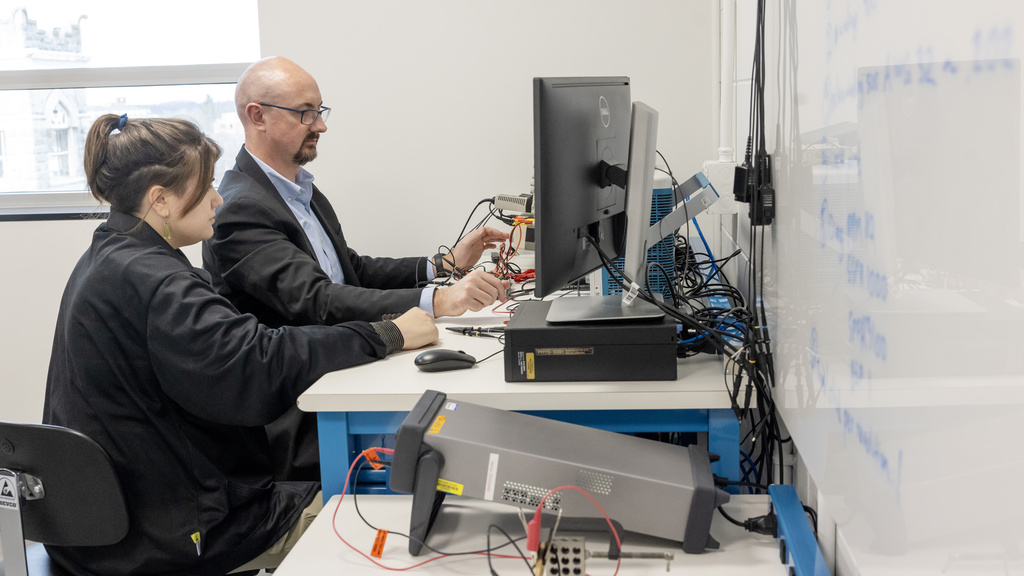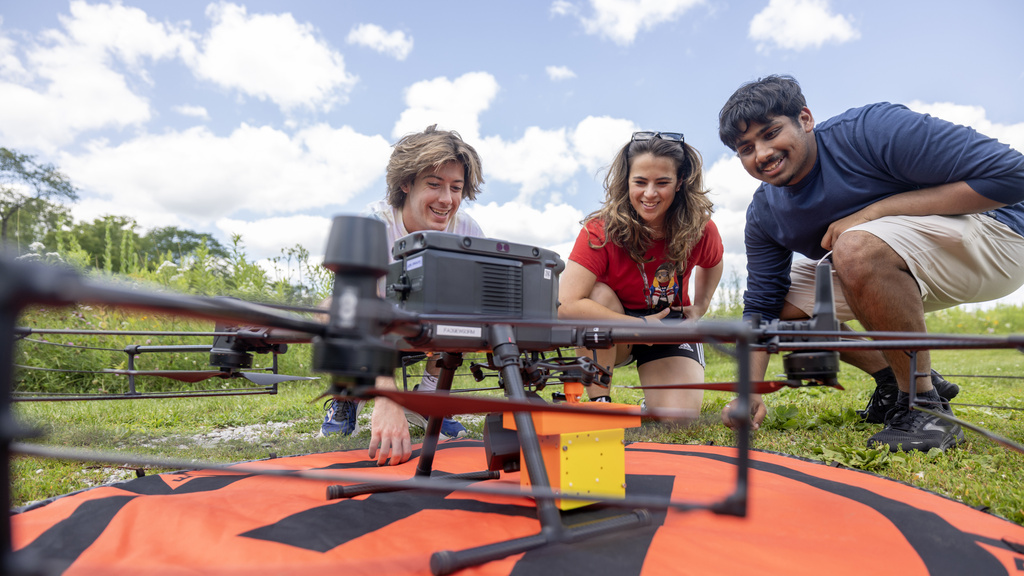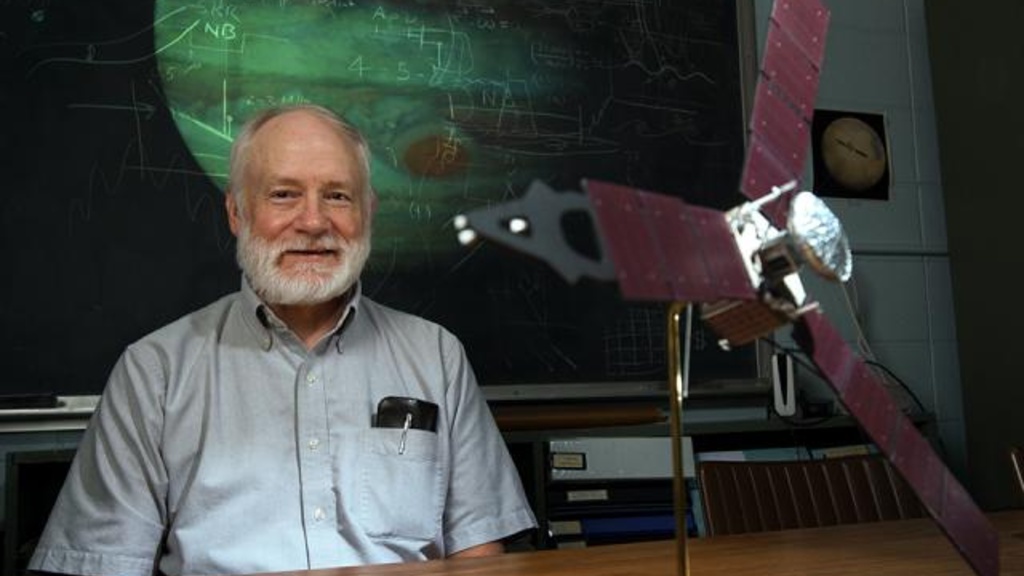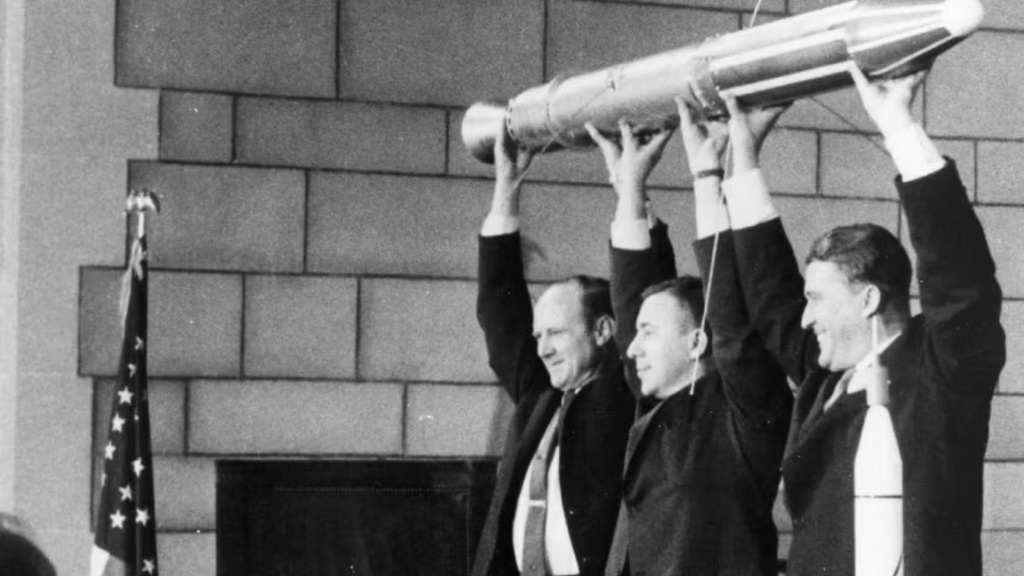News
Faculty and Staff: Submit grant awards, honors, research publications, accepted talks, and other news items through the faculty and staff news form.
UI nearing end of construction for Van Allen Hall’s Iowa Spaceflight Laboratory
Friday, February 27, 2026
In an effort to retain engineering staff from a $170 million project for NASA, the University of Iowa is renovating the seventh floor of Van Allen Hall to house the Iowa Spaceflight Laboratory, a collection of labs supporting the UI’s efforts in building spaceflight instrumentation for solar system exploration. Construction on the seventh floor of Van Allen could be completed as early as mid to late March.

Iowa City Downtown District host first event in First Round Series
Wednesday, February 18, 2026
In November 2025, the Downtown District tested a version of the idea at St. Burch Tavern with UI associate professor Casey DeRoo. The event drew a crowd of approximately 60 people and prompted the partnership to inform the Iowa City community of the variety of achievements professors are accomplishing at the university.
Swarm Receives Award from NASA
Tuesday, February 17, 2026
Assistant Professor Dustin Swarm has received an award from NASA for a project entitled “Developing a Gamma Ray Reflectometer for 511 keV Multilayer Performance Characterization."

UI researcher helps NASA capture first X-ray of a white dwarf star
Tuesday, February 3, 2026
Dustin Swarm, an astrophysicist and assistant professor at the University of Iowa, recently helped capture the first X-ray view of a white dwarf star. Swarm, in collaboration with MIT, studied the binary star system Ex Hydrae, located 200 light-years away from Earth.

Iowa Spaceflight Laboratory to allow for cutting-edge space exploration by CLAS faculty and researchers
Wednesday, January 28, 2026
Following the success of the TRACERS spacecraft launch, the Department of Physics and Astronomy faculty members are anticipating the development of the innovative Iowa Spaceflight Laboratory.

Jaynes Receives Harriet Wenger Crafton Research Award to Support Edge of Space Program
Tuesday, January 27, 2026
Associate Professor Allison Jaynes has received the Harriet Wenger Crafton Research funding award from the College of Liberal Arts and Sciences (CLAS) to support the Edge of Space Program during Summer 2027.

NASA honors Faden, Kurth for achievements on Juno mission
Friday, January 23, 2026
NASA's Exceptional Public Achievement Medals were awarded to Jeremy Faden and William Kurth at an awards ceremony at the Jet Propulsion Laboratory on January 22.

UI Physicists' Historic Role in Discovering the Van Allen Belts
Wednesday, January 21, 2026
A recent APS News feature highlights the University of Iowa’s foundational role in discovering the Van Allen radiation belts. In 1958, James Van Allen and graduate student George Ludwig analyzed puzzling radiation data from Explorer 1, the first U.S. satellite, ultimately identifying bands of energetic particles trapped by Earth’s magnetic field. Their work not only marked a milestone in the early Space Age but also established the University of Iowa as a leader in space physics research.
McShan receives ISGC grant for “Calibrating RR Lyrae Stellar Parameters" project
Thursday, January 8, 2026
Jacqueline McShan, a graduate teaching assistant in the Department of Physics and Astronomy, has received an Iowa Space Grant Consortium (ISGC) Graduate Fellowship for a research project entitled “Calibrating RR Lyrae Stellar Parameters." McShan is working with Assistant Professor David Nataf on the project. The main goal of this endeavor is to find the zero-point anchor for metal-poor RR Lyrae by correlating their observed metallicities from spectral data with their predicted metallicities from their photometric light curves.

UI wins $1.5 million to accelerate materials science research
Tuesday, January 6, 2026
The University of Iowa has won nearly $1.5 million to expand its materials science center and to explore new ways to leverage materials for quantum technologies. The award from the U.S. Department of Defense will unite researchers in chemistry, engineering, and physics to investigate which materials can be combined to build light- or electronic-based quantum systems. Ravitej Uppu, John Prineas, and Thomas Folland are co-principal investigators on the award.
Pagination